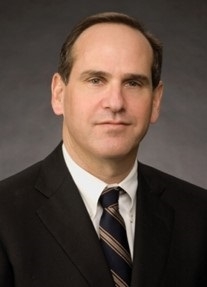When Dignity Health opened the first of 12 planned joint-venture urgent care centers in the San Francisco Bay Area earlier this month, it did more than just provide its patients with more accessible, convenient care at a lower cost.
The model will also help the healthcare system better manage population health, reduce unnecessary healthcare costs and allow emergency room doctors to focus on their sickest patients, Todd Strumwasser, M.D., Dignity Health's senior vice president of operations for the San Francisco Bay Area, told FierceHealthcare during an exclusive interview.

And it makes good business sense. As consumers take on more of the costs associated with care, they seek quality care at lower prices. And Strumwasser, pictured right, says Dignity Health is happy to provide the low-cost option for its patients.
The San Francisco-based system--a 21-state network of nearly 9,000 physicians, 56,000 employers and more than 400 care centers--earlier this year partnered with GoHealth Urgent Care to open up 12 urgent care centers in the area to fill a void and expand patient access to care they may otherwise seek at a hospital emergency room.
The clinics will operate seven days a week with extended evening hours and will be staffed with Dignity Health clinicians. Each center will offer laboratory services and x-ray equipment so staff can make accurate diagnoses. In addition, the urgent care center is integrated with the organization’s electronic medical record system so staff can easily access patient records from any Dignity Health location.
“We believe, and I believe, that patients will take more advantage of urgent care centers [for conditions] that they are now going to emergency rooms for,” he said. In addition, urgent care centers provide treatment options for “the walking well,” millennial patients who don’t feel they need a primary care provider. “These are the kind of situations [that] will be tailor-made for urgent care centers.”
Another option for care
The system’s urgent care center strategy is simple, according to Strumwasser.
“We are trying to provide patients with increased access points in our healthcare delivery system. In addition to having access points being appropriately priced, the patients need to be seen in right location, receive the right treatment for the right price at the right time.”
So rather than seek care at the emergency room if they have diarrhea, patients can go to a nearby urgent care center, which costs less and won’t clog up the ER, which needs to treat higher acuity patients.
The organization now needs to educate people in the community about which conditions are best treated in the different settings, and when they should seek care in the urgent care center instead of the ER. “It’s not easy for patients to make that determination,” he said.
The trend in healthcare is to expand ambulatory care options to reserve hospitals for the sickest patients. The urgent care model, according to Strumwasser, will address the healthcare needs of a population by providing access to care when patients need it.
In addition to a primary care provider, Strumwasser says the centers will be staffed with allied health professionals, such as nurse practitioners, physician assistants and medical assistants. The state-of-the art electronic medical record system will also help the organization eliminate waste because clinicians will be able to pull up records from any Dignity Health location and see what tests and lab work was already ordered.
Complementary--not competitive--services
As for those primary care physicians that see urgent care centers as a threat, Strumwasser believes the model complements the care those providers offer. If a primary care provider can’t see a patient due to their office hours, the urgent care center can provide that care.
“We are providing a service for them as well because their patients are getting good care,” he said. And if the primary care provider is a Dignity Health provider, he or she can easily access the medical information so that encounter is not lost.
Right now, Strumwasser says, urgent care centers answer a problem that exists in the San Francisco community. Even if a patient has a primary care provider, it’s not easy to find an appointment that day or even in a week. Urgent care centers allow patients to seek immediate care.
“We are all trying to take the best care of patients. Healthcare is a team sport, and requires all of us to work together, not as competitors but as collaborators to answer needs of our patients, he said. “And I think the more we can do to make it easy for our patients, the healthier our community is going to be.”